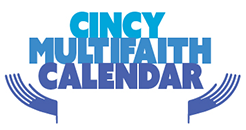
Violence and Peace are at the origin of two opposite ways to building society.”~Vatican Radio
Pope Francis, in his message for the 50th World Day of Peace, asked for nonviolence as a style of peace. Violence is not the cure for our broken world. “May charity and nonviolence govern how we treat each other as individuals, within society and in international life. When victims of violence are able to resist the temptation to retaliate, they become the most credible promoters of nonviolent peacemaking.” Nonviolence does not mean to surrender or to take a passive role. Pope Francis sites leaders like Mahatma Gandhi, Khan Abdul Ghaffer Khan, Leymah Gbowee, and Dr. Martin Luther King Jr. as role models for combating injustice.
So what is our personal responsibility? We have to begin with our own family. “The family is the indispensable crucible in which spouses, parents and children, brothers and sisters learn to communicate and to show generous concern for one another, and in which frictions and even conflicts have to be resolved not by force but by dialogue, respect, concern for the good of the other, mercy and forgiveness. From within families, the joy of love spills out into the world a radiates to the whole society.” Pope Francis sees many religious traditions reflecting the same message of peace for which “compassion and nonviolence are essential elements point to the way of life.” He concludes his message to the world by stating that, “No religion is a terrorist. Violence profanes the name of God. Let us never tire of repeating, ‘The name of God cannot be used to justify violence. Peace alone is holy. Peace alone is holy, not war!’”
To further this message from the family to the community, the Archdiocese of Cincinnati will be celebrating Masses on January 1st in Celebration of the 50th World Day of Peace. Several representatives from various faith traditions will be attending at this liturgy. Pope Francis’ theme, “Nonviolence: A Style of Politics for Peace” will be incorporated into the celebration by preceding it with a procession comprised of groups who advance nonviolence at various levels of society: family, faith, city, nation, world and creation. Representing “faith,” Jewish, Muslim and Protestant Christian members of the MARCC board will represent efforts to promote local, interfaith dialogue and cooperation. They will carry with them a candle, representing the light of peace, which is at the heart of all our faith traditions.
You can read the Archbishop’s homily at the Telegraph here.

















